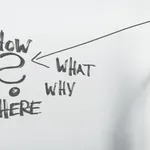Is Buying A Tradeline Really Enough To Increase Your Credit Score?
Posted on 30 October, 2022 by MIRANDA BOTTAS in Increase Credit Score

The idea of increasing your credit score is always a favorable one. You'll be eligible for better loans with low interest rates, higher limits on credit lines, and when you want to purchase something that requires the help of a bank or other lender - you'll be a good candidate.
Whenever you're in the situation where you've decided to make a large purchase, you'll begin that process with a lot more confidence if you have good credit. And even when it's already good (or even great) there's no harm in trying to increase your credit score directly beforehand to get the best overall outcome for all aspects of your financing.
If you've decided that you're going to buy a tradeline to help increase your credit score before buying a home for example, you might be wondering if a single tradeline is really enough. The answer to that question depends on several things, including:
- The bank or lender you're working with (do you have a history with them?)
- The amount of the loan you'd like to secure
- Whether or not you're putting money down, and if so, how much
- The current standing of not only your credit score but your overall credit report
- Your gross annual income or earnings
- The total worth of any assets you may hold
- What kind of interest rate you'd like to lock in
- How long you've been employed
- ...and other potentially important factors
While the items mentioned above might seem like a lot, each one may or may not be important. Credit profiles are very complex and the methods used by credit bureaus to calculate scores are also complex - but lenders aren't only looking at the scores. There's a lot to consider, and each factor could be a potential obstacle that buying tradelines can help you overcome.
What Do Lenders Look At?
When requesting a credit line - whether it's a credit card or a home loan - lenders look at several factors. The smaller the amount of the loan, and the more creditworthy you are the less they tend to look at the fine details. For example, an auto loan is much easier to secure than a home mortgage for most people. It's not too hard to walk into a car dealer, have them run a credit check, and provide proof of employment to see what you qualify for and what the terms are. On the other hand the mortgage process can be lengthy, invasive, and sometimes downright brutal - especially if your credit score or overall standing is borderline.
The main thing that lenders want to know is that you can be trusted to pay back the money your're requesting. Naturally, since lending money is their business they do everything they can to make wise decisions. That includes determining, of course, whether you're worthy or not. Nobody wants to (nor will they) extend credit to someone who isn't capable of paying it back. It's really pretty simple. Whether or not a single tradeline can make or break that determination is definitely a important thing to consider before you decide to buy one.
How Can I Raise The Likelihood Of Increasing My Score?
If we're speaking from the perspective of authorized user tradelines, the best results are gained by those who take the time to understand where they stand, what's expected of them, what they need, and how a certain type of tradeline can help them achieve their goal better than another. Again, we must remember that it's not all in the score.
Your credit score is the end result of an algorithm. Within the algorithm are a plethora of metrics, and different lenders focus on these metrics in different ways. For example, when securing a large line of credit it's important to have a diverse profile, long history of on-time payments and no delinquencies. Negative remarks - especially recent ones - will have the worst affect on your chances of obtaining new credit. But when your score is good and your payment history is good, it's still possible to have a hard time with loans due to a short credit history, a lack of installment payments, a high debt-to-income rating, or utilizing too much of the credit that's already been extended to you.
The best way to guarantee you'll get a favorable outcome from buying tradelines is take a look at how it will potentially affect your credit profile as a unique individual. A particular credit card may have exactly what you need to be deemed creditworthy because it lengthens the age of your credit by 6 years, while another high-limit card with less history won't do a thing to help you out - at least in the eyes of a particular lender.
Which Tradeline Should I Buy?
If you're serious about buying a tradeline and want to know the truth, here it is... Yes, a single tradeline really is enough to increase your credit score. Sometimes by over a hundred points or more. However, it'd be quite embarassing to walk into a lender's office and be unexpectedly denied due to something entirely unrelated on your report. In order to avoid that, you'll need to do your homework. You'll need to ensure your info is consistent across all of the major credit bureaus. You'll need to ensure your name, address, and employer match exactly and are inline with the details provided on your loan application, and, for any tradeline you plan to purchase.
The best thing you can do before you buy is familiarize yourself with the possibilities. The Ultimate Guide to Authorized User Tradelines is a great place to start learning if you're the type of person who likes to truly understand how things work. But you can always contact your tradeline company and ask them for assistance too. If they're good, they'll give you the best advice possible because their business depends on results, referrals, and happy customers.
Who Should I Trust To Increase My Credit Score
GFS Group is a tradeline company that has significant expertise in helping their clients manage the outcomes of their purchases. This is done by providing insight into the possibilities and realities of buying one line versus another, or even the need to buy multiple lines (this is known as a tradeline package). Either way, we can help detect the features that mesh best with your needs and recommend the exact card or cards that provide the best opportunity. This means less wasted time, less wasted money, and much higher chances of gaining the line of credit that you're seeking - and sometimes even securing something that's better than you had initially expected. In the case that tradelines won't help your situation, we'll be the first to tell you and explain why.
Yes, buying a tradeline is definitely enough to increase your credit score. But it's experience and knowledge that really count when it comes to using this tool to achieve a very specific objective. If you enter with the right strategyand knowledge, you'll more than likely exit the situation with the intended results. Make informed decisions, and you'll always be better positioned to benefit.

PREVIOUS ARTICLE
Where To Buy High Quality Credit Card Tradelines
NEXT ARTICLE
Why Authorized User Tradelines Don't Work
